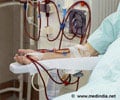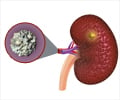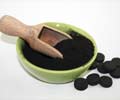Q: Which doctor should I see if I need Dialysis?
A: A Nephrologist or a Physician with interest in kidney diseases. Nephrologist is a physician, whereas if surgery is necessary a surgeon performs it and this usually is a urologist.
Q: When should I start the process to get a kidney transplant?
A: If your kidneys are failing, a kidney transplant may be a treatment option for you. The balance of risks and benefits varies, though, depending on your age and other health problems. If you want a kidney transplant, you must contact a transplant center and ask for a transplant evaluation. It is not automatic. Only a transplant team can tell you that you are definitely eligible (or not eligible) for a transplant. You can contact one or more transplant centers and start to be evaluated when it seems likely that you will need dialysis within two to three years. Most kidney transplants are successful - more than 90% of transplants are still working one year later. Recent studies have found that the odds of good results are somewhat better with a "preemptive" transplant, done before dialysis is needed. Preemptive transplant requires a willing living kidney donor-probably a relative, spouse, or friend.
Q: Which type of dialysis is better?
A: Both hemodialysis and CAPD have its advantages and disadvantages. These are as follows:
- With hemodialysis one has top travel to a hospital for the procedure on an average three to four times a week and stay for at least 6 to 8 hours during the dialysis, whereas with CAPD this can be done safely at home. However, one has to do it daily and three to four times in a day the fluid exchange has to take place using sterile precautions. It also means having to store a supply of CAPD fluid boxes at home.
- In hemodialysis there is a necessity to prick the skin with two needles each time you go for the dialysis where with CAPD this is not the case.
- With CAPD because it is done daily the fluid and food restrictions are a little less rigorous compared to hemodialysis where the restrictions are more.
Q: I put on weight between hemodialysis - what is the reason?
A: Putting on weight between dialysis is not unusual, this is due to the kidneys not excreting fluid. It is also due to drinking fluids. You should only drink the restricted amount of fluid that is allowed. Usually the dialysis unit advises this.
Q: Is it dangerous to skip dialysis?
A: Yes, this can lead to fluid overload and accumulation of waste products in the body. This can lead to breathing problems due to a serious condition called pulmonary edema where fluid gets accumulated in the lungs.
Q: Should I report immediately if there is pus at the exit site of my catheter?
A: Yes this can cause serious infection of the peritoneal cavity and if not taken care of immediately.
















